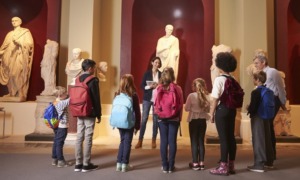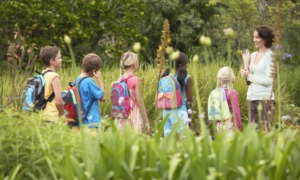Represent, New York
There I was on the train to visit City-As-School for the first time. It was an alternative school for people who don’t feel comfortable in a traditional school setting. Translation: Some rinky-dink hole in the wall manufactured to house academic misfits. But I was failing at my old school, so I didn’t have much choice.
My mother’s death, “growing pains,” a creeping sense of failure and an inability to communicate what help I needed had all contributed to not doing well in school. In therapy I was working out many of the painful childhood feelings that I’d tried to suppress for years. All this took a toll on my motivation and grades.
Sitting in the City-As auditorium, I told myself I was too smart for this. Sure, I had failed, but I would do better. My mind began to change when I heard the assistant principal say, “It is your responsibility to take control of your education. We’ll help you, if that’s what you want. The traditional public school system wasn’t good enough for you, so you sought out an alternative. You haven’t been accepted yet, but you have made the first step.”
Two weeks later I registered for classes. Unlike most schools, at City-As, students get most of their credits through internships. For science credit, I started working at the Central Park Zoo.
I found my classes and internships engaging. I also liked that teachers didn’t give much homework. Yet I still didn’t feel that I could succeed.
When I signed up for an after-school workshop on learning tools to deal with life’s transitions, I focused on taking charge of my education and kept a journal of my efforts.
Week 1: For my first challenge, I decided to speak to teachers about how to succeed.
I got nothing but positive comments. My social studies teacher said, “Great, you’re one of the most involved and mature people in my class.” And my English teacher seemed enraptured by my work. It was a nice break from my old high school, where I was constantly avoiding teachers because I was cutting and had work due.
Week 2: I decided to talk to students in my English class who I thought were interesting and nice.
I expected it to be easy, but trying to make friends also brought up some feelings from my past that I didn’t expect. In my other schools and foster homes, I’ve always had trouble with fitting in and belonging.
Talking to my classmates, I noticed I was anxious about putting myself out there. I felt afraid that there was something wrong with me, something unlovable and unchangeable that made everyone run away.
Week 3: I decided to speak to three new people a day at my school but I found out I’m a coward about meeting people. At best I would say, “Hi, how are you doing?” At worst I would just smile and nod.
I guess I’m more reserved than I knew. I felt pretty bad about the whole thing. It reminded me of what happened at my old school. There were hundreds of groups and cliques and tons of clubs to join. But instead of finding a way to join a single group, I became a loner and recluse. In a building with thousands of people, I was alone.
In the past, I’d blamed this on my foster mother, my social workers and the kids. But the only person I could really blame was myself, and that hurt. After two weeks of trying, I decided I was putting myself out there more than I wanted to. It brought up too many old feelings of rejection that I don’t want to deal with.
Week 4: Looking over my diary, I realized a familiar pattern: I tend to come out strong in a new situation, then get scared and back away. I realized that I want to take things slower and find one or two people to talk to about our classes.
If I’m reasonable about what I expect from myself, I think I might accomplish much more. In fact, lately I’ve been feeling less overwhelmed and isolated at school. I’m participating in my classes, my grades are good and I’m slowly meeting my classmates.
Even though I don’t yet feel connected to my school and fully responsible for my education, I think I better understand the process of change. Now I realize that life will be a continuing cycle of transitions, and that change can help me grow. That makes me feel more confident in my ability to evolve.
© 2007 Youth Communication/New York Center. http://www.youthcomm.org.






























